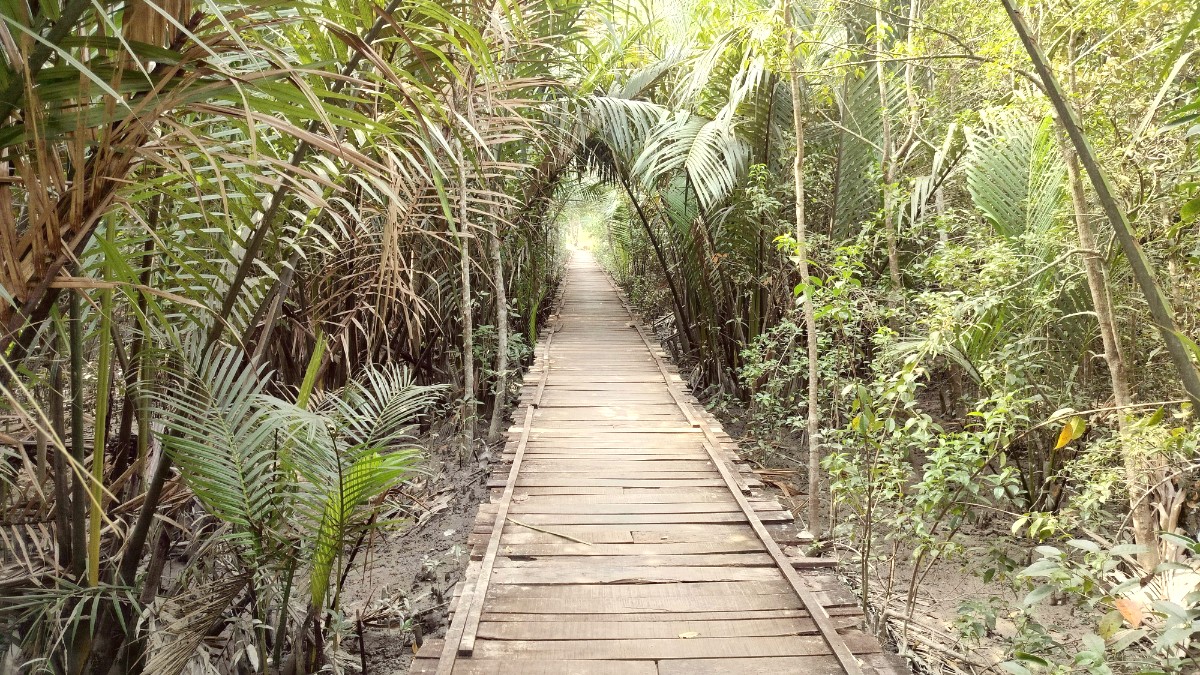
Bangladesh
By equipping yourself with this practical knowledge, you can approach your Sundarbans adventure with confidence. It allows focus on the unique experiences the forest holds, rather than worrying about mundane logistical issues. This guide intends to be your go-to resource for everyday practicalities.
Always carry sufficient small denominations of Bangladeshi Taka. This assists with everyday purchases, rickshaw fares, and tipping, as change can be difficult to find for larger notes.
Communication tools are for smooth travel.
Local SIM cards and mobile providers are readily available. Major providers include Grameenphone, Robi, and Banglalink. Grameenphone often displays the best coverage, extending even to some parts of the Sundarbans, though connectivity deep inside the forest remains limited.
Regarding internet access and Wi-Fi availability, in cities like Khulna, hotels, cafes, and some restaurants offer Wi-Fi access. Public Wi-Fi hotspots are rare. On Sundarbans tour boats, some higher-end vessels might supply satellite internet or Wi-Fi, but it is often slow, unreliable, and may carry an additional charge.
Postal services operate nationwide by Bangladesh Post Office (BPO). For sending international parcels, private courier services like DHL or FedEx render more reliable and faster options, mainly from Dhaka. For postcards or letters, the BPO is an option, but transit times can be long.
Language barriers can occur. The official language is Bengali (Bangla). Many in tourism, educated individuals, and urban areas speak some English, it is less common in rural areas.
Purchase a local SIM card upon arrival. Data packages are affordable, and having local connectivity (where available) assists with navigation, ride-sharing apps, and communicating with your tour operator.
Knowing typical operating hours for businesses, banks, and considering public holidays will smooth your travel planning.
Generally Sunday to Thursday, 9 AM to 5 PM. Closed on Fridays and Saturdays.
Typically Sunday to Thursday, 10 AM to 4 PM. Some city branches may have extended hours.
Generally open from 10 AM to 8-9 PM, with varied weekly closing days.
Banking hours and ATM locations are important for managing your cash. ATMs are widely available in Khulna, with banks like Brac Bank, Dutch-Bangla Bank, and Standard Chartered having a strong presence. ATMs are less common in Mongla and non-existent within the Sundarbans forest.
Religious and public holidays are frequent in Bangladesh. Major holidays include Eid al-Fitr, Eid al-Adha, Durga Puja, Christmas, and Buddha Purnima. During these times, businesses, banks, and government offices may close or have reduced hours.
Check the Bangladeshi public holiday calendar before your trip. Traveling during major festivals can mean crowded transport and closed businesses, though it also presents unique cultural experiences.
A little awareness goes a long way in showing respect and building positive interactions. Observing local customs deepens your travel experience.
Greeting customs are an important first step. A simple "Assalamu Alaikum" (peace be upon you) is a common greeting among Muslims, while "Nomoshkar" is common among Hindus. Handshakes are common among men.
Appropriate attire for different settings stresses modesty. Modest dress holds importance throughout Bangladesh, showing respect for local norms. This applies to various environments.
Dining and tipping practices are part of daily life. Traditionally, food is eaten with the right hand, especially for rice-based meals. Avoid using your left hand, which holds an unclean association.
Photography permissions and restrictions call for sensitivity. Always ask for permission before photographing people, especially women and children. A simple gesture or "photo?" often works.
Always use your right hand when giving or receiving items, shaking hands, or eating. The left hand holds an unclean association in Bangladeshi culture.
Travelers with mobility challenges face significant hurdles in Bangladesh, including the Sundarbans region. The infrastructure is generally not designed for accessibility, impacting the travel experience.
Infrastructure for travelers with mobility challenges is limited. Sidewalks are often uneven, narrow, or absent in urban areas, making walking difficult or impossible for wheelchair users. Public transport vehicles are not equipped for accessibility, lacking ramps or lifts.
Accessible attractions and transportation are notably scarce in the Sundarbans. The nature of the destination itself presents inherent challenges. Tour boats are not typically designed for wheelchair access.
Services for travelers with visual or hearing impairments are also limited. Public information rarely appears in Braille or sign language. It is highly advisable for travelers with visual or hearing impairments to travel with a companion or engage a specialized tour operator who can render dedicated assistance.
Resources and organizations making accessibility information specific to Bangladesh are few. Travelers with mobility issues should consult specialized tour operators who have experience assisting disabled travelers.
If you have mobility challenges, communicate your needs directly with tour operators well in advance. Ask for specific details on boat boarding, cabin access, and the nature of forest walks to assess feasibility.